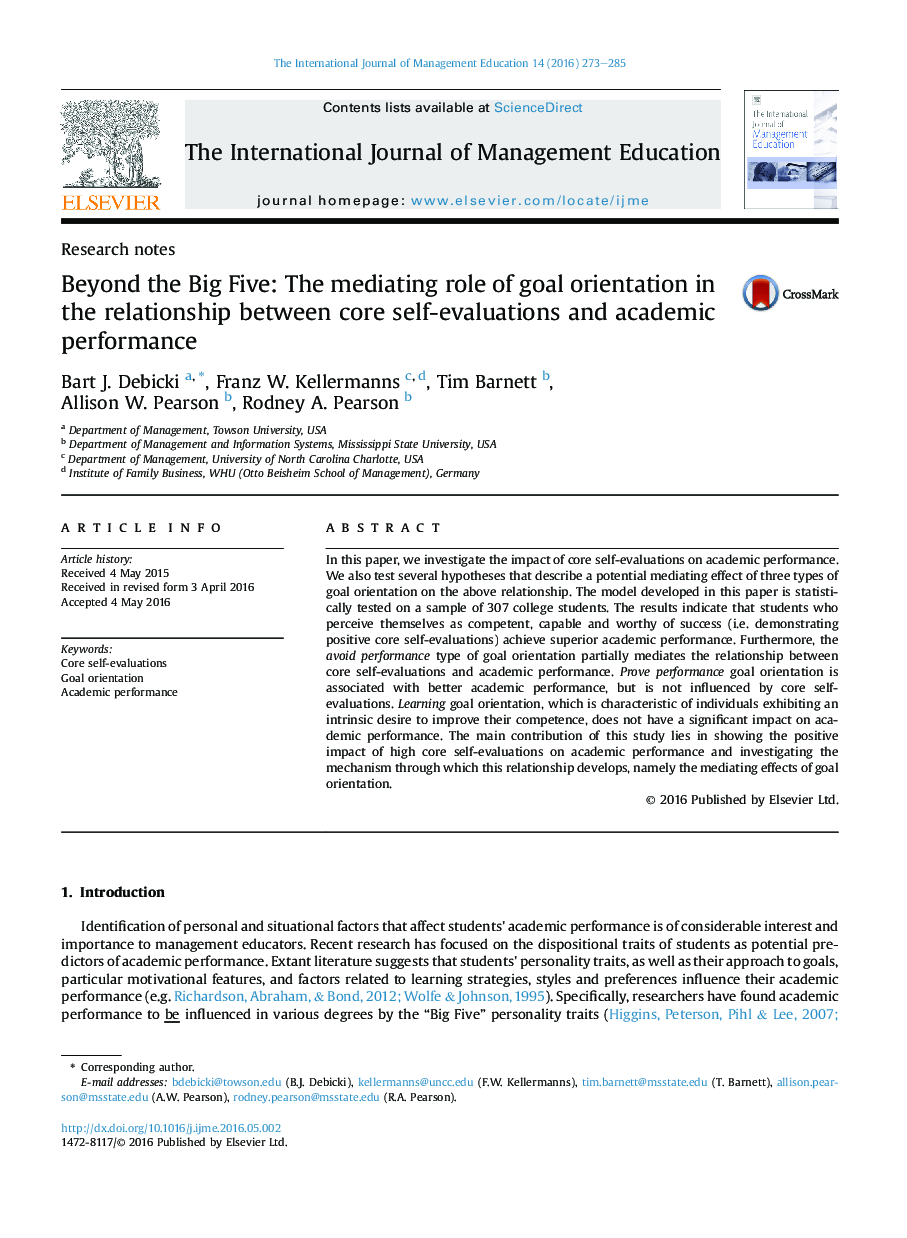| Article ID | Journal | Published Year | Pages | File Type |
|---|---|---|---|---|
| 357305 | The International Journal of Management Education | 2016 | 13 Pages |
•We investigate the impact of core self-evaluations on academic performance.•We study the mediating effect of three types of goal orientation.•Students with positive core self-evaluations achieved superior academic performance.•Avoid performance goal orientation played a partially mediating role.•Prove performance goal orientation improved academic performance.•Learning goal orientation did not result in better academic performance.
In this paper, we investigate the impact of core self-evaluations on academic performance. We also test several hypotheses that describe a potential mediating effect of three types of goal orientation on the above relationship. The model developed in this paper is statistically tested on a sample of 307 college students. The results indicate that students who perceive themselves as competent, capable and worthy of success (i.e. demonstrating positive core self-evaluations) achieve superior academic performance. Furthermore, the avoid performance type of goal orientation partially mediates the relationship between core self-evaluations and academic performance. Prove performance goal orientation is associated with better academic performance, but is not influenced by core self-evaluations. Learning goal orientation, which is characteristic of individuals exhibiting an intrinsic desire to improve their competence, does not have a significant impact on academic performance. The main contribution of this study lies in showing the positive impact of high core self-evaluations on academic performance and investigating the mechanism through which this relationship develops, namely the mediating effects of goal orientation.
